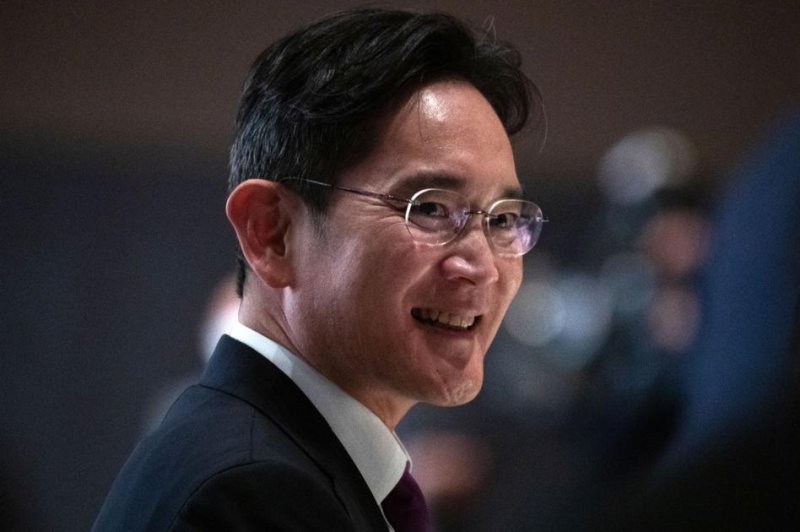The protracted legal saga involving Samsung Electronics Executive Chairman Jay Y. Lee has finally reached its conclusion with an acquittal by the South Korean Supreme Court, signaling a pivotal moment for the nation’s leading conglomerate and its broader economic landscape. This ruling, closing a chapter that spanned nearly a decade, not only brings personal vindication for Lee but also opens a critical national dialogue about corporate power, prosecutorial discretion, and the future of South Korea’s tech industry.
Lee’s legal troubles began with charges of offering substantial bribes to the former Park administration. These alleged bribes were intended to secure government backing for a controversial merger between Samsung C&T and Cheil Industries, a deal purportedly orchestrated to consolidate Lee’s control over the vast Samsung empire. The initial accusations led to his arrest in 2017, a subsequent conviction, and a partial prison sentence, which marked the beginning of a complex and prolonged legal battle that would profoundly impact the company’s trajectory.
However, the legal fight was far from over. Lee’s initial conviction was overturned, leading to multiple retrials. In September 2023, prosecutors reignited the controversy by formally charging Lee and ten other Samsung executives with 23 counts, including serious allegations of accounting fraud, capital markets violations, and breach of trust. This escalation triggered years of sweeping investigations, extensive raids, and numerous indictments, forcing Lee to make over 100 court appearances throughout the process.
Despite the persistent legal pressure, lower courts in both 2024 and 2025 found all defendants not guilty. The Supreme Court meticulously reviewed 229 pieces of evidence before unanimously affirming the acquittal. This outcome starkly contrasts with legal norms in many advanced democracies, such as the United States or France, where double jeopardy rules would typically bar further appeals after an initial acquittal. South Korea’s lack of such a rule has consequently raised profound questions about the extent of prosecutorial discretion and the delicate balance of democratic power within its judicial system.
Internally, the prolonged legal uncertainty created a climate of risk-aversion within Samsung, giving rise to the term “sammuwon” – a blend of “Samsung” and “gongmuwon” (civil servant), indicative of an increasingly bureaucratic corporate culture. This absence of decisive top-level decision-making, directly attributable to Lee’s legal battles, severely stifled innovation at a critical juncture when the global tech race was rapidly accelerating. The consequences were palpable and severe, impacting Samsung’s competitive edge in key sectors, which became a significant concern for the South Korean tech industry.
The strategic paralysis resulted in a notable decline in Samsung’s global standing. In 2023, Intel surpassed Samsung as the world’s leading chipmaker. Samsung’s market share in high-bandwidth memory (HBM), a core technology crucial for artificial intelligence advancements, slipped significantly. By early 2025, Taiwan’s TSMC dominated with a formidable 67.6% market share, while Samsung’s share plummeted to a mere 7.7%. Even China’s SMIC, a rising competitor, narrowed the gap, trailing Samsung by just 1.7 percentage points, underscoring the urgency for a shift in economic strategy.
The consistent acquittals at every judicial level – district, high court, and ultimately the Supreme Court – strongly suggest that this was not merely a complex financial case, but rather a significant political flashpoint where Samsung, a symbol of South Korea’s economic prowess, became both a focal point and a target. This legal battle, therefore, extended beyond corporate compliance, delving into the very heart of the nation’s rule-of-law culture and the balance between public and private sectors.
The political backdrop to the final ruling is equally telling. President Lee Jae-myung, traditionally a progressive known for his populist critiques of the powerful chaebol, has recently altered his stance. Amid escalating economic headwinds, including potential U.S. tariffs and rapid shifts in global supply chains, the president has made quiet overtures to the very conglomerates he once criticized. His private meetings with top business leaders like Jay Y. Lee and key appointments signal a crucial recognition: in times of geopolitical and economic upheaval, South Korea’s future competitiveness hinges not solely on the public sector, but significantly on a robust and globally integrated private sector.
For Jay Y. Lee, the acquittal is more than just personal vindication; it represents a renewed mandate to lead Samsung through an existential crisis, as he himself articulated. His urgent call to action reflects the immense pressure to restore South Korea’s standing in vital areas such as artificial intelligence, advanced chips, and sophisticated manufacturing. While the Supreme Court’s ruling may have concluded a decade of intense legal warfare, it simultaneously ignited a far more consequential national conversation about the appropriate exercise of power – both public and private – within a modern, democratic society, especially concerning its impact on the economic strategy and the tech industry.






Leave a Reply